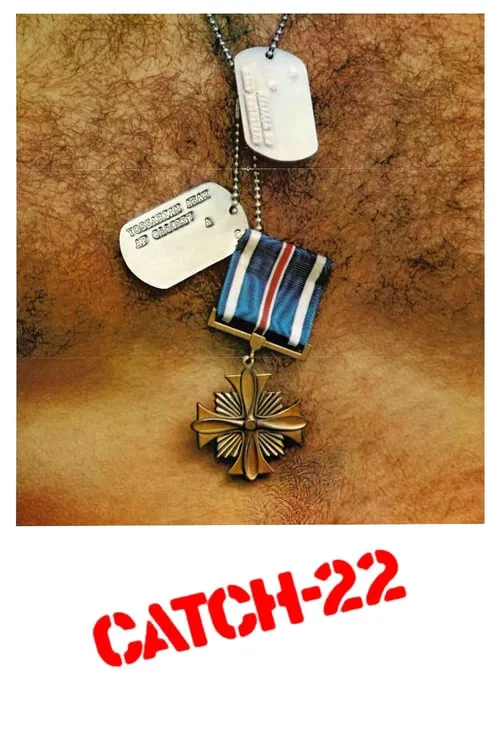Catch-22

Plot
Catch-22, directed by Mike Nichols and released in 1970, is an adaptation of Joseph Heller's satirical novel of the same name. The film's narrative revolves around the story of Captain John Yossarian, an American Air Force bombardier stationed in the Mediterranean during World War II. The film's primary theme explores the psychological and moral implications of war, particularly through Yossarian's struggles to cope with the absurdities of military bureaucracy and the harsh realities of combat. The story is narrated by Yossarian, voiced by Alan Arkin, who recounts his experiences in the 256th Aircraft Squadron, commanded by Colonel Cathcart, a self-serving and ambitious officer who consistently seeks to increase the number of missions his crew undertakes. Cathcart's motivations for raising the mission count are twofold: he hopes to increase his chances of becoming a general and earn higher decorations, and he genuinely believes that more exposure to war will toughen his men. However, these goals often lead to disastrous consequences for Yossarian and his fellow airmen. As the film progresses, we see the effects of Cathcart's policy play out in the form of increasingly grueling missions and a rising death toll among the squadron's personnel. The crew's morale plummets, and tensions between the pilots and their commanders escalate. The men are subjected to an environment where the military's priorities seem to be in direct conflict with their own humanity. Enter Milo Minderbinder, played by Jon Voight, a fellow pilot with a unique and self-centered approach to the war. Milo is the entrepreneur of the squadron, running a successful business on the side while fighting for the U.S. military. The film's iconic phrase, "Catch-22," is associated with Milo's logic-defying business model. His catchphrase, "What's good for M & M Enterprises is good for the country," exemplifies the absurd and morally dubious decisions made by the military's top brass. One of the central ideas explored in Catch-22 is the concept of "Catch-22," a fictional military regulation that seems impossible to resolve due to its own paradoxical nature. According to the regulation, if a soldier is deemed insane by a certain number of psychiatrists, they are exempt from duty. However, to be considered insane, the soldier must declare that they are sane. This illogical scenario creates an impossible situation for Yossarian, who begins to question his own sanity and struggles to come to terms with the military's arbitrary and often life-threatening rules. Yossarian's personal relationships with his colleagues play a significant role in the film. His bond with fellow officers Nately and Orr serve as an emotional anchor, contrasting with the detachment and cynicism exhibited by the military commanders. The characters of Milo and Cathcart, in particular, embody the moral emptiness and self-serving motivations that permeate the military bureaucracy. The film culminates in a series of dramatic events, as Yossarian and his fellow airmen concoct a plan to escape the madness of war. In a poignant and often darkly comedic conclusion, the characters must confront the reality of their situation and the futility of their attempts to escape the confines of the military's system. Ultimately, Catch-22 is a scathing critique of war, bureaucratic red tape, and the human spirit's capacity for resilience in the face of unimaginable horror. The film challenges its audience to consider the psychological and emotional costs of war, particularly in the context of World War II. By presenting a darkly satirical narrative, director Mike Nichols and the film's cast succeed in creating a thought-provoking and unromanticized portrait of military life during wartime. Through its exploration of themes such as sanity, bureaucracy, and morality, Catch-22 raises fundamental questions about the nature of conflict and the human condition. The film's conclusion serves as a powerful commentary on the consequences of our actions and the imperative of questioning authority in the face of seemingly insurmountable obstacles. As the film's narrative comes full circle, it becomes clear that the line between reality and fantasy is blurred, and that the only way for Yossarian to cope with the madness of war is to confront the inherent absurdity of his situation head-on. The film's ending can be seen as both a reflection of the futility of human existence and a testament to the enduring power of human resistance in the face of overwhelming adversity. In Catch-22, we find a searing indictment of war and a testament to the human spirit's capacity for both resilience and rebellion. The film remains a powerful and thought-provoking commentary on the human experience, continuing to resonate with audiences today.
Reviews
Recommendations




